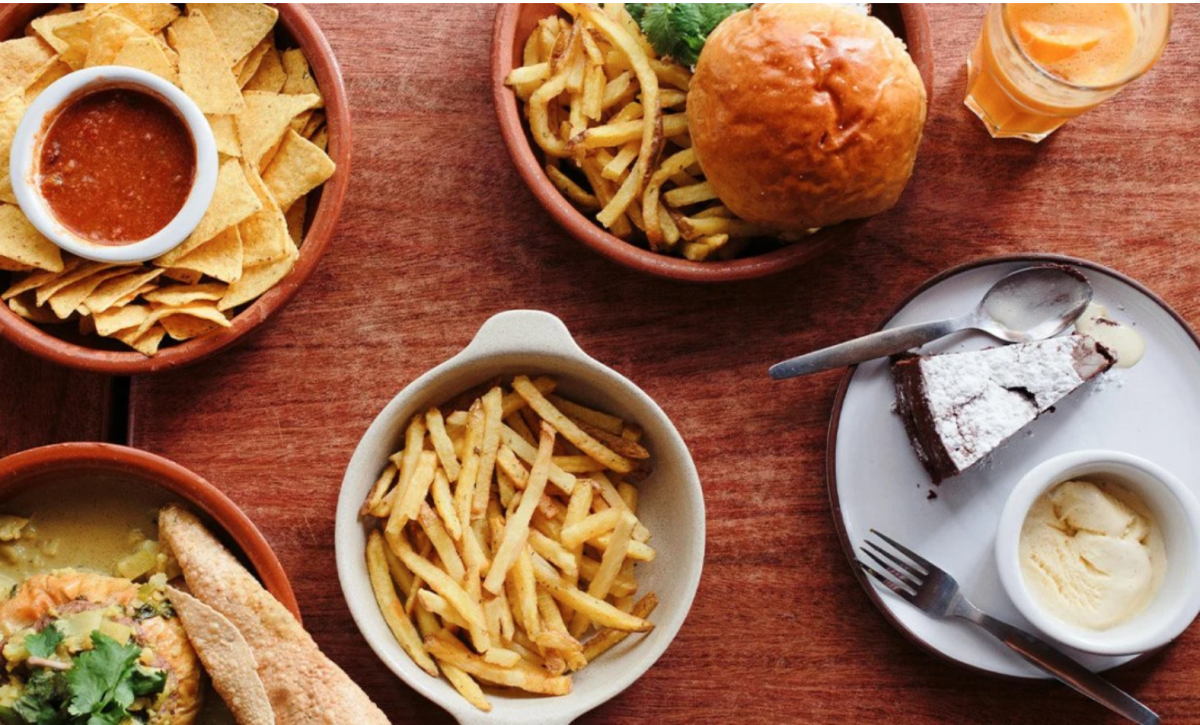By definition, bulking is an easy concept to understand: engaging in a caloric surplus1 to gain weight. However, it is one of the most disputed topics in the fitness industry. Many people bulk for various reasons, many looking to gain muscle mass and increase their size. Multiple people support different methods of bulking and dispute how to gain weight best. The two most popular approaches are dirty and clean bulking.
The Stereotypical Method: Dirty Bulking
Dirty Bulking is the emblematic practice of bulking: eating as much as possible to gain weight at a rapid pace. It also involves eating and drinking various high-calorie foods, including cakes, fast food, and beverages. Even though such a method sounds reckless and somewhat foolish, there are some pros to dirty bulking. One of them is how fast one can gain weight, as sometimes many do not have the option of slowly gaining importance because of time constraints. For instance, if a football player wants to gain 15 pounds in 10 weeks, they may have to be in a more significant caloric surplus to reach their goal. Many who struggle to gain weight may find dirty bulking attractive because it is easier to gain weight consistently. The portion size of 500 calories of a burger is vastly different from 500 calories of chicken and vegetables. Unfortunately, there are various drawbacks to a dirty bulk. Most significantly, a dirty bulk generally involves eating unhealthy foods.
Additionally, such bulkers may have difficulty getting back to a healthy diet. Finally, some people have fallen into the habit of binge eating, a severe overeating disorder. As attractive as a dirty bulk can be for struggling lifters, there are significant drawbacks to this approach.
The “optimal” method: clean bulking
Clean bulking is precisely what it sounds like: the polar opposite of dirty bulking. It entails a slight caloric surplus while eating a relatively healthy diet. Additionally, beverages should usually be calorie-free unless they are performance-enhancing, such as low-calorie protein shakes. Fitness coaches and trainers generally endorse this approach to bulking as opposed to dirty bulking. Usually, this is because clean bulks are significantly less likely to add sizable amounts of fat than dirty bulks. The process of a clean bulk is not only healthier but much more deliberate and calculated than a dirty bulk.
Furthermore, lifters can easily transition back to a regular diet. However, with all the benefits, there are some drawbacks to clean bulks. For instance, it is much harder to gain weight while eating healthy. Many people who have a busy schedule filled with physical activity may not be able to obtain enough calories to be in a caloric surplus. Additionally, many will find that eating a healthy diet may only sometimes be sustainable. After all, even though lifters should have a certain level of discipline, sustaining a diet needs to be enjoyable and rewarding. Although a clean bulk seems ideal, it still has its drawbacks.
My take: a balanced diet
From my personal experiences with bulking, both dirty and clean bulks have not worked out as well for me as I thought they would. With a dirty bulk, I would feel sluggish and slightly lethargic, while on a clean bulk, I would only gain a little weight. Having a mix of both has helped me, as occasionally indulging in comfort foods has not devastated my fitness plans. Concerning beverages, protein shakes and reduced-fat milk has helped me reach my daily caloric goals, though I try to avoid sugar-heavy drinks such as soda. With my caloric intake, I also like to adjust the value by how quickly I gain weight; for instance, if I feel that I am gaining too much weight, I lower my intake. However, the optimal balance between having a dirty and clean bulk varies from person to person, so I recommend experimenting with the strictness of a diet while attempting to gain weight.
1Caloric Surplus- A physiological state where calories consumed are greater than the amount of calories burned.



